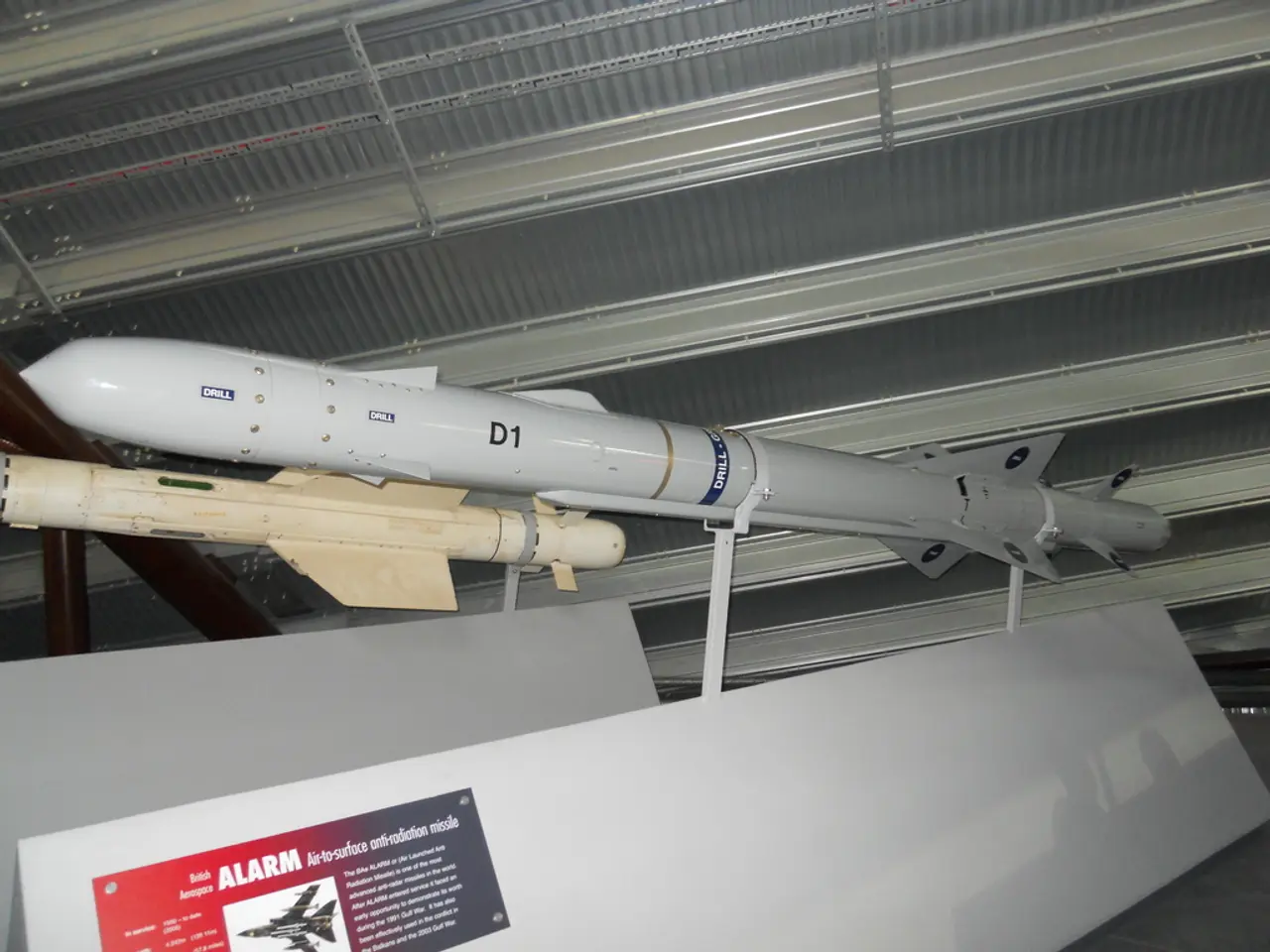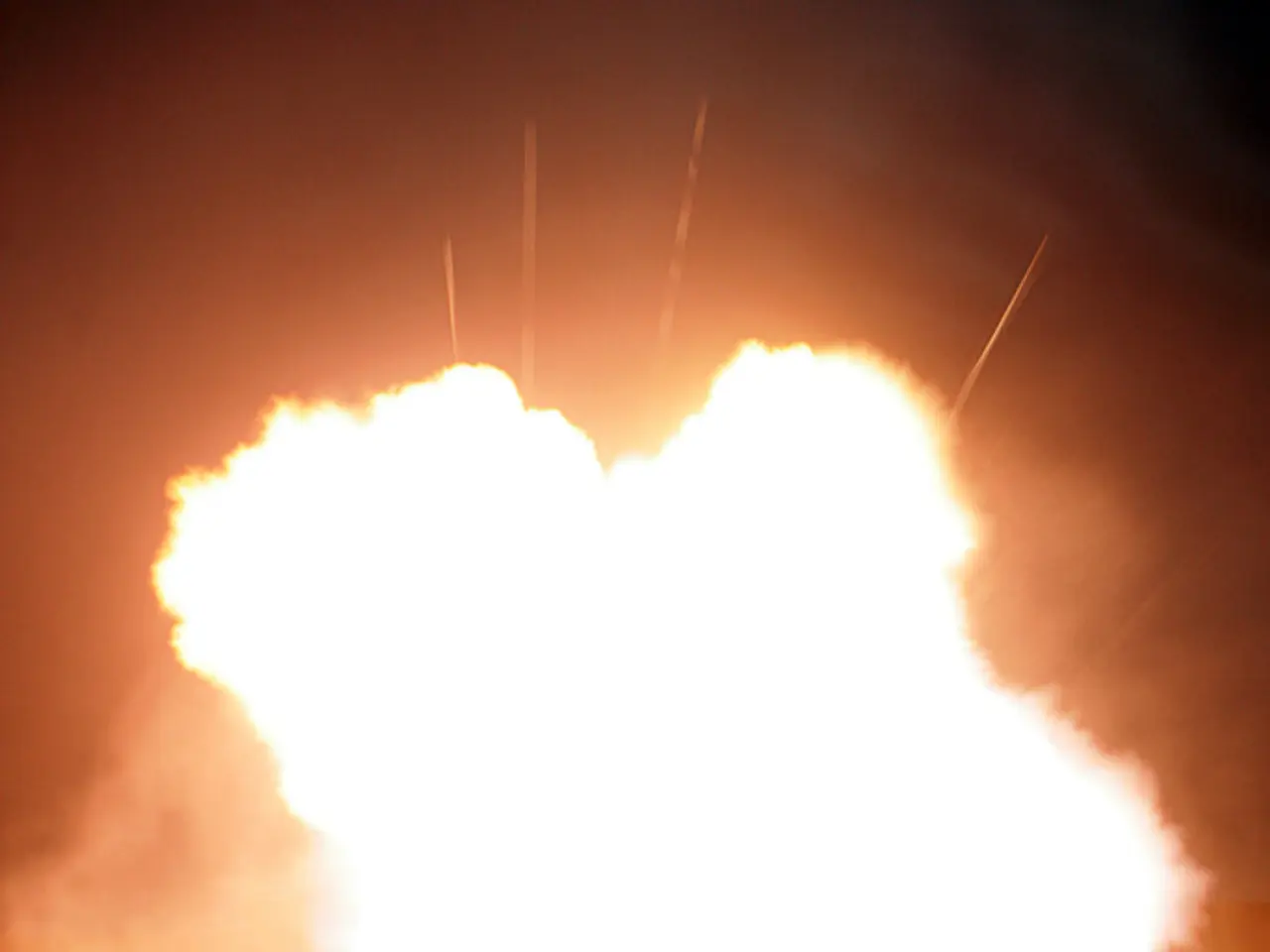Eastern border of NATO under defense by Latvia, while Ukraine peace negotiations scrutinize alliance's resilience
NATO Strengthens Presence in Baltic Region: The NATO Multinational Brigade Latvia
The NATO Multinational Brigade Latvia is set to reach full force next year, marking a significant escalation in the alliance's eastern defensive posture. This multinational battalion-sized force is an integral part of NATO's response to Russia's aggression, particularly the full-scale invasion of Ukraine in 2022.
The brigade, which currently consists of two combat teams, two tank units, an infantry battalion, and a combat engineering unit, is a testament to NATO's commitment to collective defense and deterrence in the Baltic region. Its formation and bolstered presence directly respond to Russia's aggressive actions, underscoring the alliance's strategic response to Russia’s hostility.
The backbone of Latvia's defense is the national guard, which has been significantly strengthened. The reinstatement of voluntary conscription for men and women aged 18 to 27, and later making it mandatory for men, has played a crucial role in this strengthening.
Latvia has also increased its defense budget substantially. From 2024, the country will allocate nearly 4% of its gross domestic product towards defense, one of the highest percentages in Europe. This investment is reflected in the brigade's enhanced military capacities.
The realization is sinking in Sweden that the defense of their country starts and ends at the Latvian-Russian border. Sweden's ambassador to Latvia, Karin Hoeglund, stated that Russia's 2022 attack on Ukraine led her country to join NATO to be "on the right side of history."
Canada aims to deploy 2,200 Canadian Armed Forces members by that time, joining the fourteen nations that have already brought their troops, intelligence, and weapons to the NATO Multinational Brigade Latvia, with a pledge to defend NATO's eastern border.
However, the brigade has not been without challenges. Russia has trafficked migrants and sent them into Poland, Finland, and Latvia, causing Latvia to build a long fence covered in barbed wire along its border. Additionally, Russian bots on social media have made false accusations against Canadian soldiers and German soldiers from NATO, including accusations of drinking too much and raping a minor.
Despite these challenges, Colonel Jūris Mazurs, deputy chief of the Terehova Border Crossing Point, believes that preparing as best as possible for potential threats is essential, as it may act as a deterrent to potential aggression. Latvian National Armed Forces Staff Sergeant Jorens Zile welcomed the brigade's increased military capacities but stressed that Latvia planned to expand its defensive capabilities, too.
The goal of Latvia is to have 50,000 new combat-ready individuals by 2027. This ambition, coupled with the NATO Multinational Brigade Latvia's enhanced presence, underscores the alliance's determination to protect the Baltic region and deter any potential Russian aggression.
The NATO Multinational Brigade Latvia is part of a broader NATO deployment, including battlegroups in Estonia, Lithuania, and Poland. NATO created several combat-ready multinational forces in the Baltics and Poland following Russia's annexation of Crimea in 2014, with the goal of protecting Europe and deterring any Russian attack. The "Baltic Sentry" mission, announced by NATO, further underscores this commitment, involving maritime patrol aircraft, frigates, and naval drones patrolling critical infrastructure in the region.
In the face of ongoing threats, the NATO Multinational Brigade Latvia stands as a symbol of multinational cooperation and interoperability among NATO forces, ready to deter potential adversaries and defend Latvian land if necessary.
- The European Union, following the formation of the NATO Multinational Brigade Latvia, has expressed concern over the potential escalation of crime and migration issues along the Baltic region's borders.
- The increased government investment in Latvia's infrastructure, both military and civilian, is intended to bolster the nation's resilience against any potential adversaries and better accommodate future military forces.
- The media has come under scrutiny for propagating false accusations against NATO soldiers, including those from Canada and Germany, which have strained relations and raised questions about media integrity in the region.
- Several international organizations, besides NATO, have expressed interest in the general-news surrounding the NATO Multinational Brigade Latvia, particularly regarding the alliance's strategy for confronting Russian aggression.
- The investigation into the accusations against NATO soldiers has been carried out by the Latvian government, with the aim of maintaining transparency and upholding the rule of law, thus ensuring the integrity of NATO's operations in the Baltic region.








